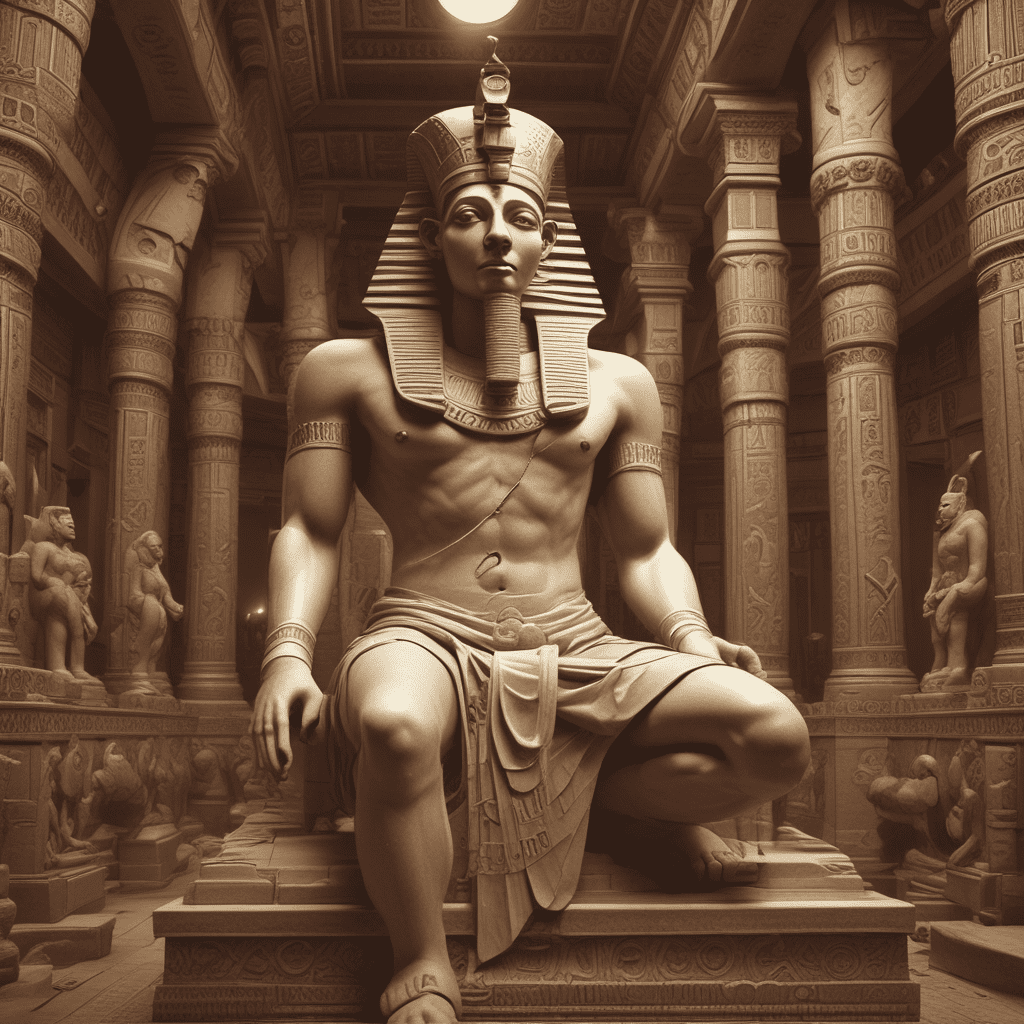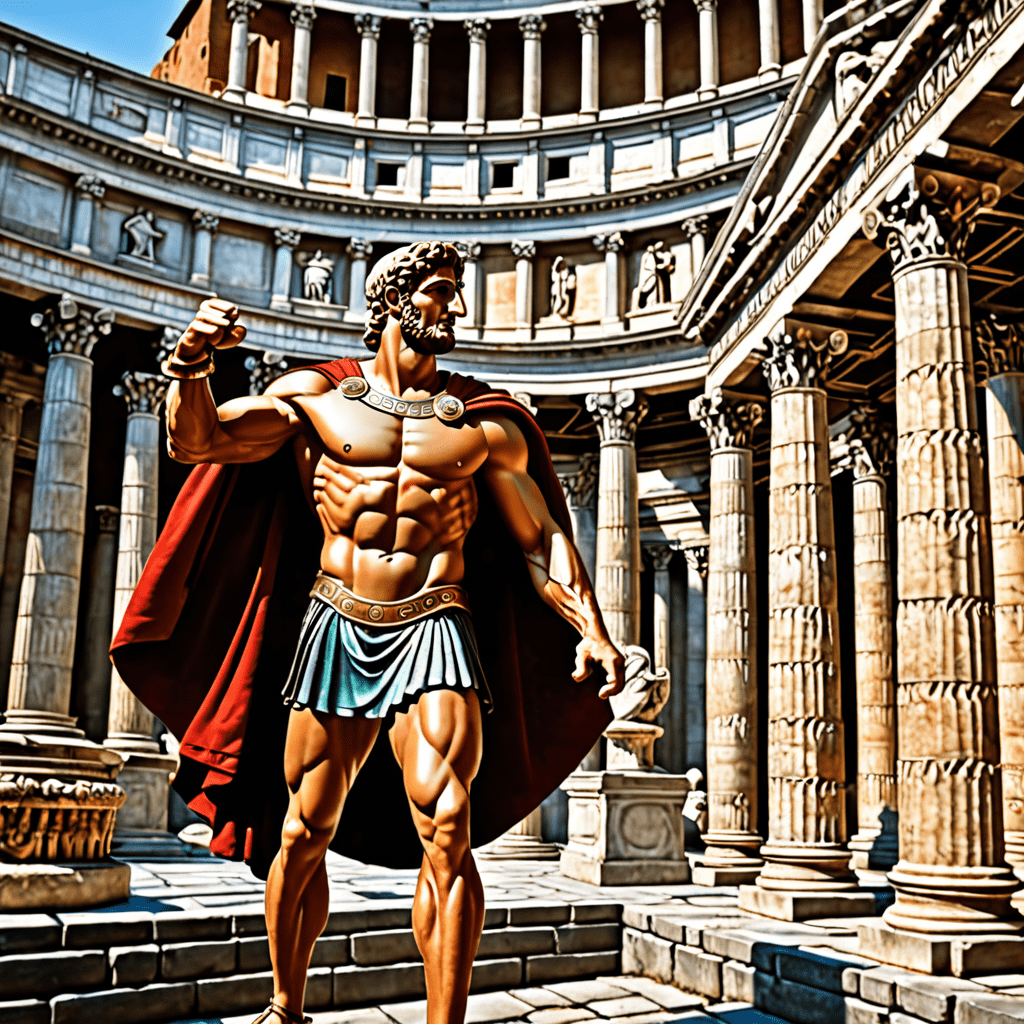The Cycle of Change: How Myths Embrace Transformations
Introduction
The concept of change is an intrinsic part of the human experience. From personal growth to societal evolution, transformation is a constant that shapes our lives. Myths play a crucial role in reflecting and shaping cultural perceptions of change, acting as a lens through which societies interpret their realities. These narratives not only provide insight into the historical context but also offer frameworks for understanding the complexities of transformation.
Understanding Myths: Definitions and Functions
Myths are traditional stories that explain a culture’s beliefs, values, and practices. They serve to communicate profound truths about the human condition, often involving deities, heroes, and supernatural events. Myths hold significant importance across various cultures, functioning in multiple ways:
- Storytelling: Myths entertain while also educating their audiences.
- Moral Guidance: They provide ethical frameworks that inform societal norms and behaviors.
- Community Identity: Myths foster a sense of belonging and shared values within communities.
The Nature of Change: Philosophical Perspectives
Philosophers throughout history have pondered the nature of change. One prominent figure, Heraclitus, famously stated that “everything flows,” suggesting that change is the only constant in the universe. This perspective highlights the inevitability of change in both individual lives and societies. Change can be disruptive yet transformative, prompting growth and adaptation in various forms.
Mythical Archetypes of Transformation
Myths often encapsulate common archetypes that represent transformation. One of the most significant is the Hero’s Journey, a narrative framework identified by Joseph Campbell that outlines a hero’s adventure, trials, and ultimate transformation. Examples of specific myths that embody these archetypes include:
- The Epic of Gilgamesh: A story of personal growth and the quest for immortality.
- Hercules: His twelve labors symbolize the struggle and transformation through trials.
- King Arthur: His journey from a humble beginning to a legendary king reflects the archetype of personal evolution.
Cultural Reflections of Change in Myths
Myths often mirror societal changes, reflecting the zeitgeist of their times. For example, during periods of technological advancement, myths may evolve to address new realities and challenges. Case studies of myths created in response to specific historical events include:
- The Golem of Prague: A reflection of Jewish fears and aspirations in a time of persecution.
- Frankenstein: Mary Shelley’s tale acts as a critique of unchecked scientific progress during the Industrial Revolution.
The Psychological Impact of Myths on Personal Change
Carl Jung’s theory of archetypes and the collective unconscious suggests that myths can resonate deeply with individuals undergoing personal transformations. These narratives provide frameworks for understanding personal struggles and triumphs. By identifying with mythical characters and their journeys, individuals can find solace and guidance during their own transformative experiences.
Myths and the Cycle of Life: Birth, Death, and Rebirth
Many myths center around the themes of birth, death, and rebirth, illustrating the cyclical nature of life. Notable examples include:
- The Phoenix: A symbol of renewal, representing the idea that destruction can lead to new beginnings.
- Persephone: Her story of descent into the underworld and return symbolizes the changing seasons and the cycle of life.
These myths serve as metaphors for personal and societal renewal, emphasizing the importance of embracing change.
Modern Interpretations of Myths and Change
Contemporary retellings of classic myths continue to explore themes of change. Modern literature, films, and art often reinterpret these narratives to address current societal issues. Examples include:
- The Hunger Games: A retelling of the hero’s journey set against a backdrop of dystopian change.
- Wonder Woman: A reimagining of Greek mythology that emphasizes empowerment and transformation.
These modern myths remain relevant, illustrating how the themes of change resonate across generations.
The Role of Myths in Navigating Change
Utilizing myths as tools for understanding and coping with change can be beneficial. Some strategies include:
- Identifying with mythic heroes during personal challenges.
- Utilizing storytelling as a means of processing experiences and emotions.
- Embracing the lessons of transformation found in myths to foster resilience.
Storytelling remains a powerful method for fostering adaptability and resilience in the face of change.
Conclusion: The Enduring Power of Myths in the Face of Change
The relationship between myths and transformations is profound and enduring. Myths provide valuable insights into the process of change, offering narratives that help us navigate our own transformations. By embracing change through the lens of mythological narratives, individuals and societies can find meaning, strength, and hope in the ever-evolving human experience.




